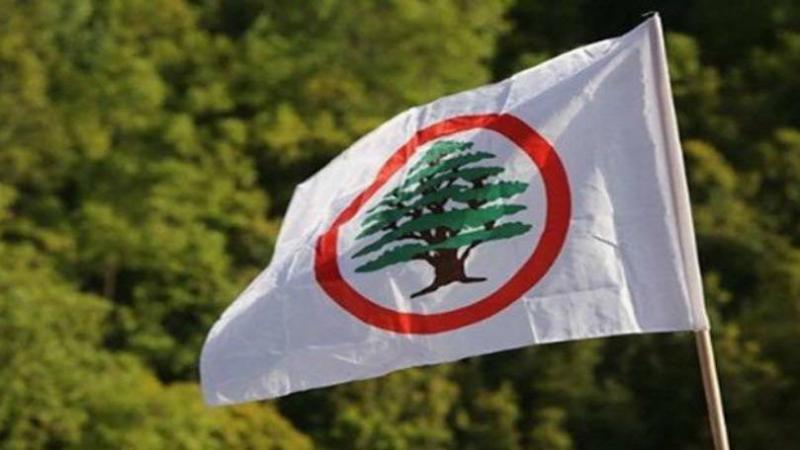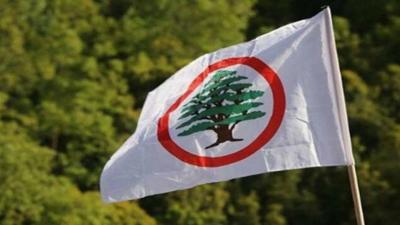It is becoming clear that the opposition forces represented by the "Lebanese Forces," the "Progressive Socialist Party," the "Kataeb Party," and other independent MPs are preparing, at the beginning of 2023, to implement a new plan to deal with the presidential crisis after the Lebanese Parliament failed in ten consecutive sessions to elect a new president for the country following the term of President Michel Aoun, which ended at the end of October last.
MP Melhem Riachi from the "Strong Republic" bloc confirms the existence of a "Plan B" regarding the presidency that may be announced at the end of January. He notes that "work is underway with MP Michel Moawad and other allied forces on the presidential file, but it is not yet time to disclose any details associated with it."
The majority of the opposition forces have managed to engage in the presidential entitlement thus far with a unified candidate, MP Michel Moawad, the leader of the "Independence Movement," but these forces have not been able to secure the necessary parliamentary votes for his victory.
Riachi mentions in an interview with "Asharq Al-Awsat" that the MPs from the "Strong Republic" bloc will continue to participate in the sessions called by Parliament Speaker Nabih Berri after the holidays, despite many believing they have become mere "boring theatrics." He emphasizes the "necessity to continue fulfilling our duties as MPs regardless of the circumstances and data."
Riachi denies that the "Forces" are aware of the motivations and goals behind the movement of MP Gebran Bassil, the head of the "Free Patriotic Movement," who recently held a meeting with the head of the "Progressive Socialist Party," Walid Jumblatt, an ally of the "Forces," refusing to comment on it and confirming that there is no dialogue with the "Free Patriotic Movement" at this stage.
Regarding concerns over a potential "political turnaround" from Jumblatt, Riachi states: "There is an exceptional partnership between us and the Progressive Socialist Party today, and our agreement with them is based on constants, unlike in the past. Additionally, communication and coordination between us are almost daily, especially between MP Wael Abu Faour and me concerning the presidential file."
Recently, the refusal of the "Forces" and the "Movement" to participate in a dialogue about the presidential crisis, called by President Berri, has led to the early termination of this effort. While the "Movement's" refusal stems from escalating disputes with Berri, Riachi states, "Our refusal to participate in the dialogue regarding the presidency has nothing to do with President Berri himself, with whom we share cordiality despite political differences," explaining that "our problem is not the principle of dialogue, but rather its subject, as we preferred and still prefer dialogue through voting for a president for the country."
Regarding the relationship with the Maronite Patriarchate, Riachi emphasizes the existence of daily communication with Bkirki (the Patriarchate's headquarters), and that "the relationship with Patriarch Bechara Al-Rai is excellent." He adds, in response to a question, "The presidential issue should today be in President Berri's court; that is, in the Parliament, not in Bkirki. If the understanding reached in 2016 was for the presidency to go to one of the Christian leaders, meaning a strong president at that time, I personally believe today that the strong presidential candidate in the sense established by former President Michel Aoun more than ten years ago is Samir Geagea. I believe—without intending to offend Moawad or anyone else—that if we want to save the republic, we should elect Samir Geagea as president."
Riachi does not hide his concerns about the security situation, considering that "the economic situation is deteriorating rapidly, the state is disintegrating, and we are unable to elect a president due to the sharp polarization surrounding the presidency." He adds, "I do not think that improving the conditions of any presidential candidate can be achieved through playing with security and returning to assassinations, but we fear that."
Regarding international initiatives that may result in a president for the republic at the beginning of the year, Riachi states: "There is certainly international interest in Lebanon, but there has not been a real initiative towards it so far. What we are convinced of is that friendly and unfriendly countries have their interests and calculations that may sometimes align with Lebanon's interests and calculations, and may not align, but the Lebanese must make their own calculations so that the countries' calculations do not come at their expense." Riachi hopes "that all countries will follow the example of the Kingdom of Saudi Arabia in dealing with the Lebanese issue, as it is the position that most adheres to Lebanese sovereignty."




